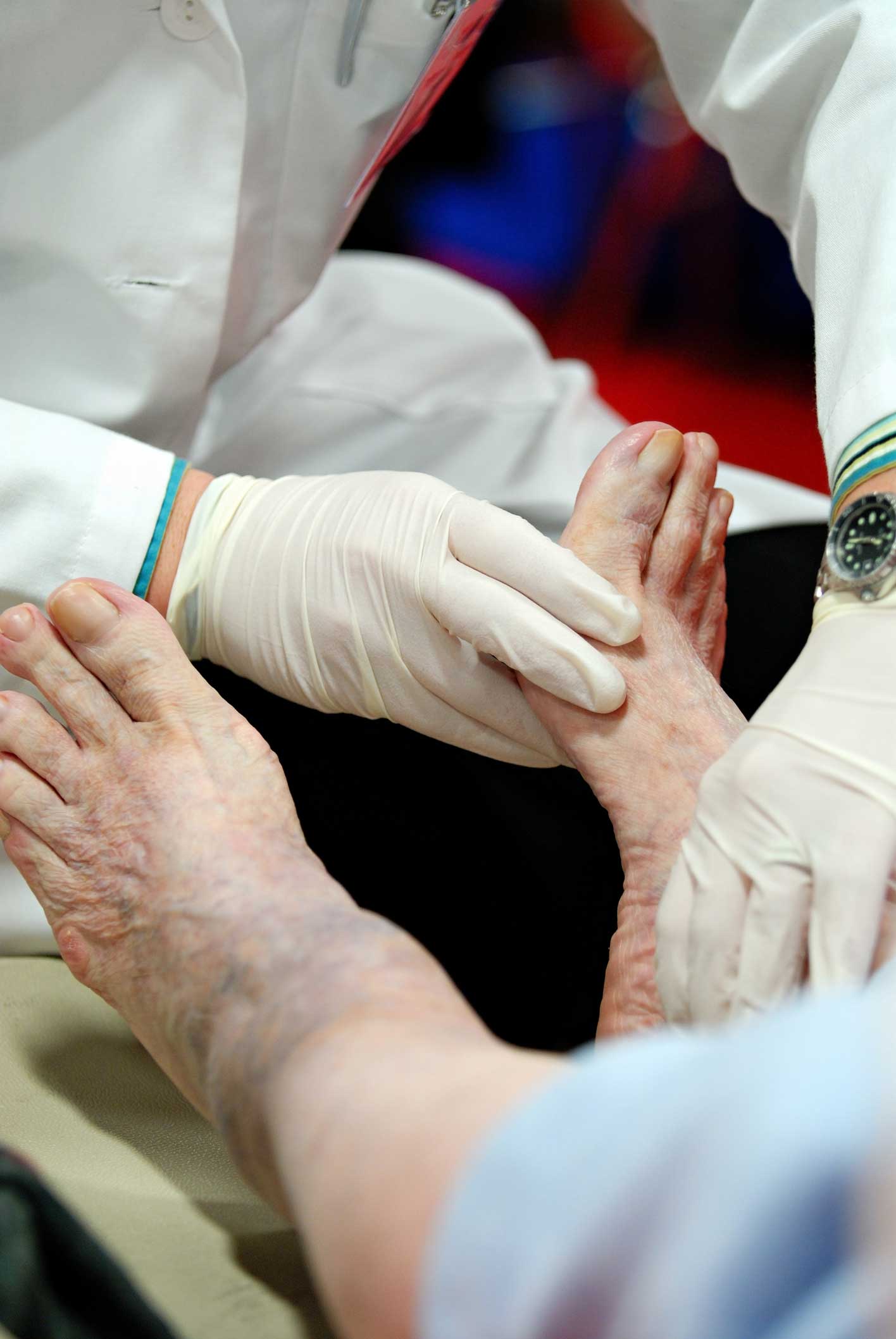Diabetic Foot Assessments
Diabetes exerts significant consequences on the feet, posing serious risks to those affected. It impairs both circulation and nerve function, leading to diminished sensation. This impaired circulation results in inadequate blood supply to foot tissues, prolonging healing time and increasing susceptibility to infections.
Additionally, reduced sensation puts feet at risk of unnoticed damage, which, combined with slow healing and infection vulnerability, can lead to ulceration and, in severe cases, amputation.
Shockingly, diabetes stands as the world’s leading cause of non-traumatic amputations. Regrettably, even commonplace foot issues and activities pose dangers for people with diabetes due to these heightened vulnerabilities. Conditions like corns, calluses, foot ulcers, cracked skin, and toenail problems can escalate swiftly. Given the progressive nature of diabetes-related foot complications, regular diabetic foot assessments play a vital role in monitoring your foot health. These assessments allow for continuous monitoring of your feet, evaluating changes in sensation, circulation, and overall foot health. While the impact of diabetes on the feet can be severe, proactive measures such as daily foot checks, awareness of warning signs, and proper foot care can significantly reduce the risk of grave complications.
We recommend seeing a podiatrist every 12 months for a foot health check. During the check-up, we will perform relevant tests to provide you and your GP with insights into your overall foot health. This evaluation helps us determine if diabetes is affecting your feet and enables early detection of any issues. If problems are identified, we will treat them and inform you if follow-up appointments are necessary.




